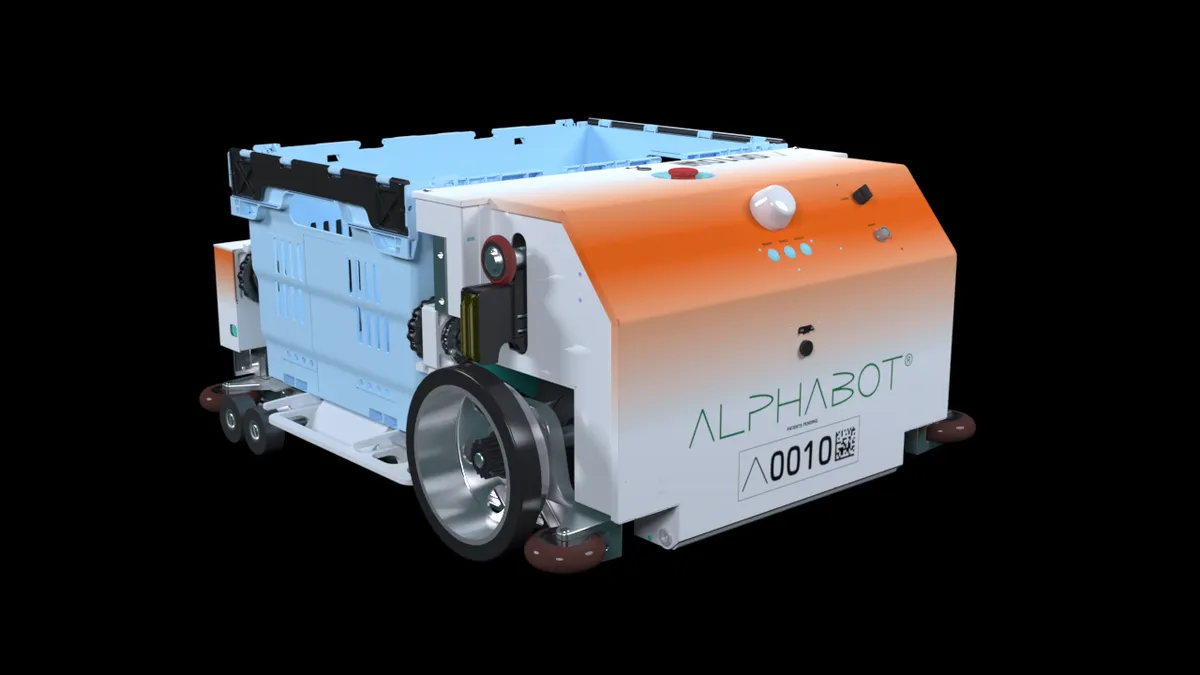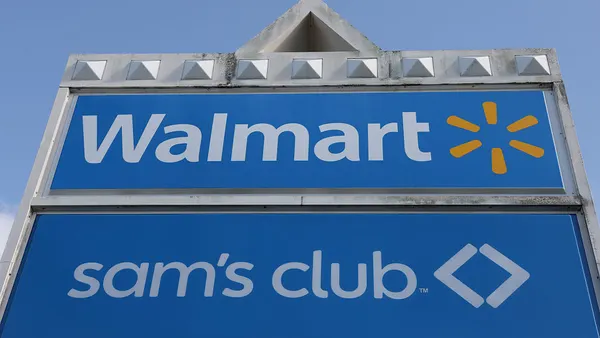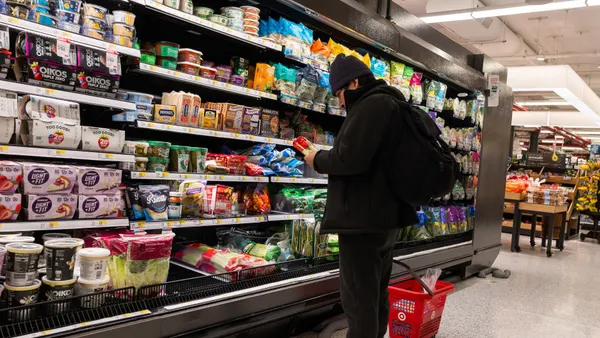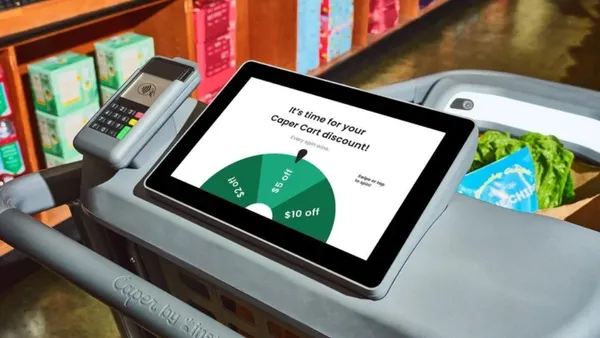Dive Brief:
- Walmart has entered a definitive agreement to purchase micro-fullment center (MFC) developer Alert Innovation, according to a Thursday press release. Financial terms of the deal were not disclosed.
- The retailer is taking over Alert after working with the startup on a multi-year pilot of the company’s robotic grocery order-fulfillment technology, known as Alphabot.
- Walmart is absorbing Alert as the retailer steps up its efforts to fulfill e-commerce orders more efficiently against a backdrop of a tight labor market.
Dive Insight:
Walmart’s decision to buy Alert cements its already close relationship with the Andover, Massachusetts-based startup, which developed the Alphabot technology specifically for the retailer.
Walmart began working with Alert in 2016, and launched a test of the autonomous cart-based system in a 20,000-square-foot warehouse connected to a supercenter in Salem, New Hampshire, in 2019. The company had been exploring potential arrangements with other retailers, but made clear in its announcement that it would focus its efforts on Walmart going forward.
“Our mission to improve people’s lives through innovation will now be dedicated to Walmart customers and associates which is an inspiring undertaking,” John Lert, Alert’s founder and executive chairman, said in a statement.
Alert will continue to operate under its existing name and remain in the Boston area, according to the announcement.
In a Thursday announcement, David Guggina, senior vice president of innovation and automation with Walmart, said Alert is notable among MFC developers because its bots move autonomously in multiple directions and across three temperature zones, and don’t require lifts or conveyors to move through fulfillment structures. This allows the company flexibility in building storage spaces and means operators don’t have to shut down the entire MFC system to fix the bots.
Guggina said the acquisition will allow Walmart to enhance its local fulfillment operations, noting that its 4,700 stores are located within 10 miles of 90% of the U.S. population.
“Bringing the best of Alert’s technology and capabilities in-house will enable us to reach customers quicker by deploying MFCs with greater speed, providing both an unmatched shopping experience and a competitive advantage in omnichannel fulfillment,” Guginna wrote.
Last year, Walmart announced it would add automated MFCs to “dozens” of stores, incorporating technology from providers like Dematic, Fabric and Alert. It said at the time that it would test MFC solutions inside stores as well as in buildings adjacent to them.
Walmart is also in the process of building “next-generation” fulfillment centers with enhanced automation capabilities. The first of these four locations opened late last month in Joliet, Illinois.
Pricey automated fulfillment center technology has been a tough sell for all but a select group of chain retailers looking to more efficiently route the high order volumes they see. But the prospects are improving as the technology evolves, experts say. In addition to using Alert’s technology to meet its own fulfillment goals, Walmart likely sees Alert as an opportunity to sell MFCs to other retailers, adding to the growing list of tools like home delivery and electronic scanners that it’s offering to other companies.
Walmart’s decision to acquire Alert follows its announcement in August that it would acquire Delivery Drivers Inc., the gig-labor company it has worked with to staff its Spark Driver fulfillment delivery service. Walmart also said in August that it was purchasing Volt Systems, a software company that provides vendor management and product tracking tools.
In a reminder that even promising technology-related partnerships can quickly change course, Walmart ended its relationship with Bossa Nova Robotics, which had supplied the retailer with robots that took inventory in its stores, in November 2020, less than a year after expanding its partnership with the automation company.















